Professor Clare Brooks appointed Head of Faculty from October 2026
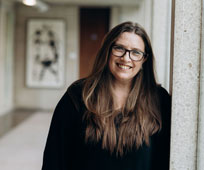
Thursday 8 January
Professor Clare Brooks has been appointed the next Head of the Faculty of Education at the University of Cambridge. She will succeed the current Head, Professor Hilary Cremin, in October 2026.
Read the full story.
Read the full story.
After more than two years of war, Palestinian children are hungry, denied education and “like the living dead”

Wednesday 7 January
A University of Cambridge-led analysis of how war has affected education and children’s lives in Gaza calls for an urgent increase in international aid to address both severe learning losses and the conflict's psychological effects.
Read the full story.
Read the full story.
The award-winning films starting new conversations about genetic science – by barely mentioning it

Thursday 18 December
An emerging collection of award-winning short films, commissioned by Cambridge researchers, is being released as part of a project to widen conversations about genetic science, particularly among audiences who might otherwise ‘walk away’.
Read the full story.
Read the full story.
Self-sustaining learning: What happened when Huntingdon sixth formers took a mini-PGCE?
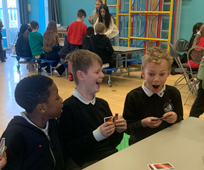
Wednesday 17 December
An experimental project at a Cambridgeshire schools trust in which sixth formers stepped into the shoes of teachers has found that the approach can generate valuable forms of learning that complement more conventional lessons.
Read the full story.
Read the full story.
Exhibition traces 200 years of Black representation in children’s literature

Monday 15 December
A new version of the first ever major exhibition exploring how Black people have been represented in UK children’s literature visits Cambridge’s Central Library from 15 December.
Read the full article.
Read the full article.
Majority want wider worldviews taught in Northern Ireland’s primary school RE curriculum
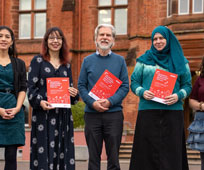
Thursday 4 December
A newly-published study shows strong public support for Religious Education (RE) in Northern Ireland to help pupils understand a wide range of different religious and non-religious worldviews, including Muslim, Humanist and atheist perspectives.
Read the full story.
Read the full story.
Better UK data needed to make home and hybrid working healthy and productive
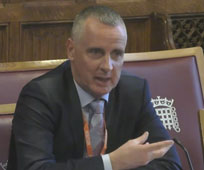
Wednesday 19 November
The House of Lords Home-based Working Committee has released a new report, "Is Working from Home Working", drawing on research from a University of Cambridge team including Professor Gordon Harold.
Read the full story.
Read the full story.
We should talk more at school: Researchers call for more conversation-rich learning as AI spreads

Monday 17 November
Generative Artificial Intelligence could result in a renewed emphasis on conversational approaches to teaching, researchers say, as large language model (LLMs)-based chatbots make it easier to bypass recall-based learning and test the limits of traditional exams.
Read the full story.
Read the full story.
Poorer students more likely to miss out on studying a language at GCSE
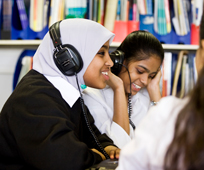
Thursday 2 October
Students from less wealthy backgrounds are more likely to attend schools where learning a language to GCSE is treated as optional – and not necessarily strongly encouraged – new research shows.
Read the full story.
Read the full story.
